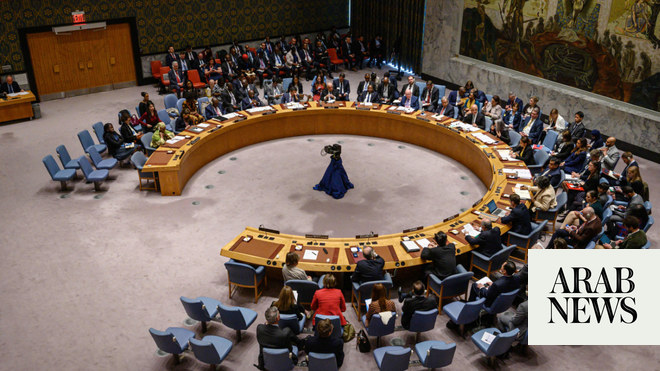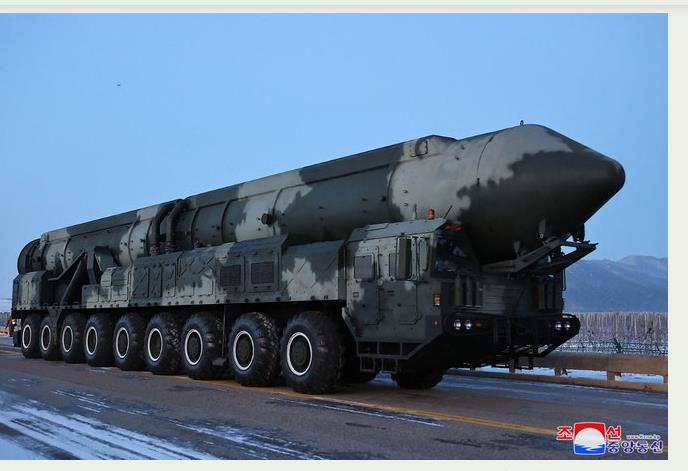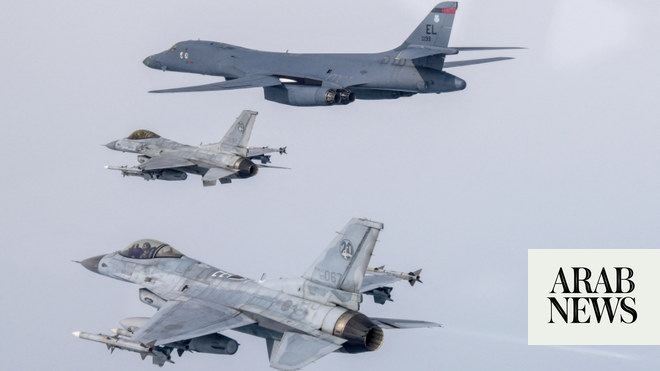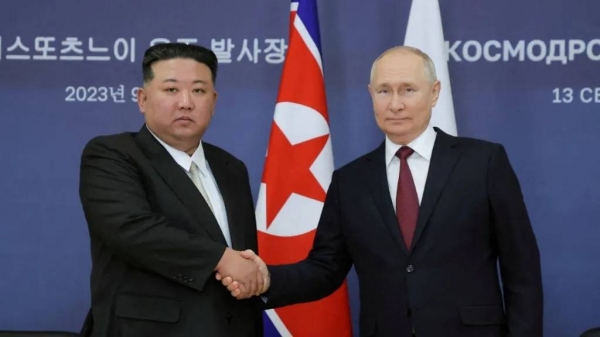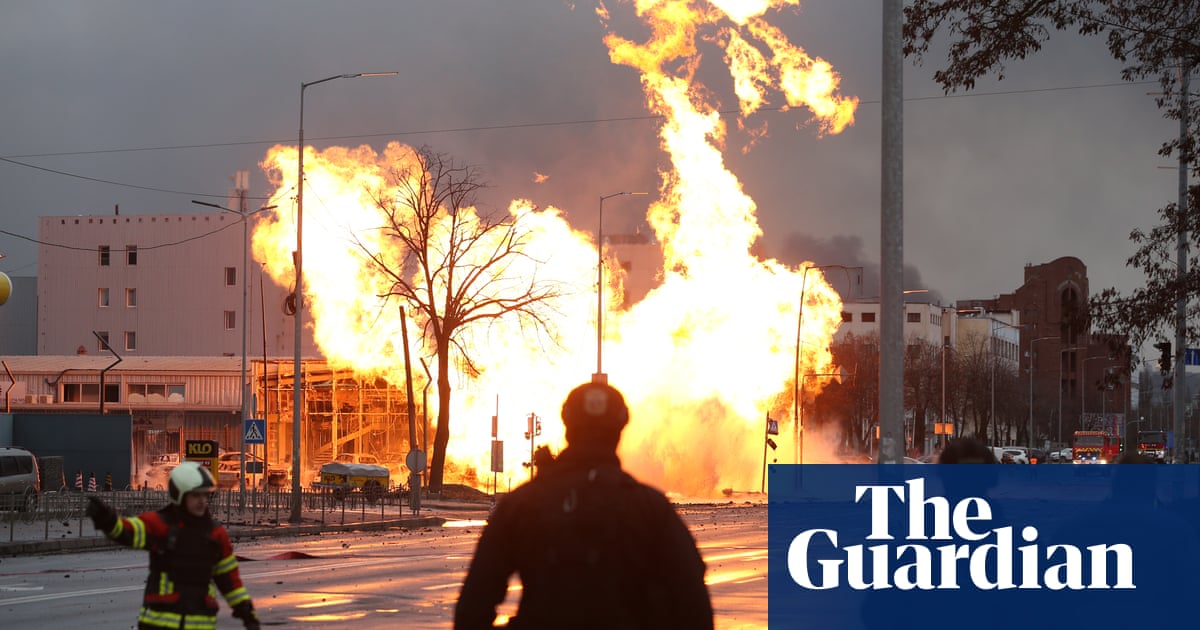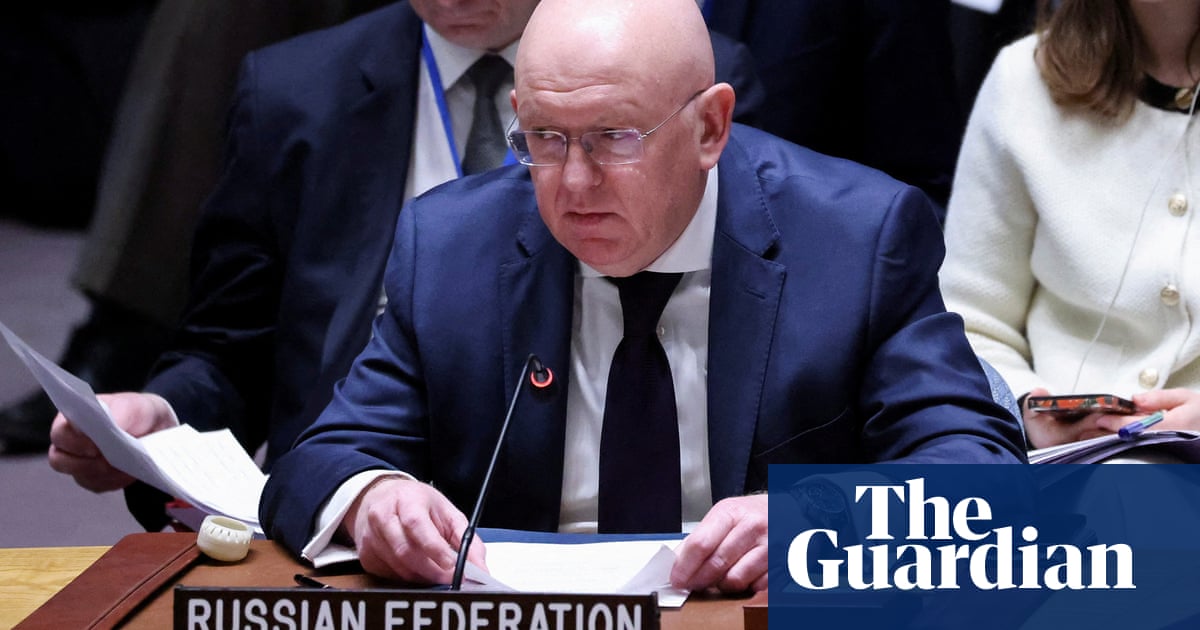
Russia has blocked the renewal of a UN panel monitoring sanctions against North Korea, weeks after the body said it was investigating reports of arms transfers between Moscow and Pyongyang.
The move was met with a flurry of criticism, including by Ukraine’s foreign minister, Dmytro Kuleba, who took to social media to call the veto “a guilty plea” amid allegations that Pyongyang is aiding Moscow in its war against Kyiv.
The United States called the veto by Russia a “self-interested effort to bury the panel’s reporting on its own collusion” with North Korea.
Moscow’s veto at the security council does not remove the sanctions on North Korea, but spells the end for the group monitoring their implementation – and myriad alleged violations. The panel’s mandate expires at the end of April.
Russia had never previously tried to block the work of the panel of experts, which had been renewed annually by the UN security council for 14 years and reflected global opposition to North Korea’s expanding nuclear weapon programme.
Russia’s UN ambassador Vassily Nebenzia told the council before the vote that western nations were trying to “strangle” North Korea and that sanctions are losing their “relevance” and “detached from reality” in preventing the proliferation of nuclear weapons in the country.
But US deputy ambassador Robert Wood called the panel’s work essential and accused Russia of attempting to silence its “independent objective investigations” because it “began reporting in the last year on Russia’s blatant violations of the UN security council resolutions.”
He said Russia’s veto will embolden North Korea to continue jeopardising global security through development “of long-range ballistic missiles and sanctions evasion efforts”.
Britain’s UN ambassador Barbara Woodward said Russia’s veto follows arms deals between Russia and North Korea in violation of UN sanctions, including “the transfer of ballistic missiles, which Russia has then used in its illegal invasion of Ukraine since the early part of this year.”
“This veto does not demonstrate concern for the North Korean people or the efficacy of sanctions,” she said. “It is about Russia gaining the freedom to evade and breach sanctions in pursuit of weapons to be used against Ukraine.
“This panel, through its work to expose sanctions non-compliance, was an inconvenience for Russia.”
France’s UN ambassador Nicolas de Riviere added that “North Korea has been providing Russia with military material in support of its aggression against Ukraine, in violation of many resolutions which Russia voted in favour of.”
The security council imposed sanctions after North Korea’s first nuclear test explosion in 2006 and tightened them over the years in a total of 10 resolutions seeking – so far unsuccessfully – to cut funds and curb its nuclear and ballistic missile programmes.
The last sanctions resolution was adopted by the council in December 2017. China and Russia vetoed a US-sponsored resolution in May 2022 that would have imposed new sanctions over a spate of intercontinental ballistic missile launches.
The security council established a committee to monitor sanctions and the mandate for its panel of experts to investigate violations had been renewed for 14 years until Thursday.
In its most recent report circulated last month, the panel of experts said it is investigating 58 suspected North Korean cyber-attacks between 2017 and 2023 valued at approximately $3bn, with the money reportedly being used to help fund its development of weapons of mass destruction.
The experts said North Korea continues to flout sanctions, including by further developing its nuclear weapons, and producing nuclear fissile materials – the weapons’ key ingredients. It also continues to import refined petroleum products in violation of council resolutions.






